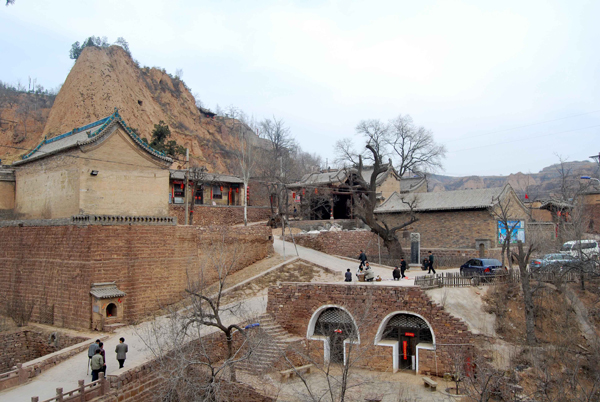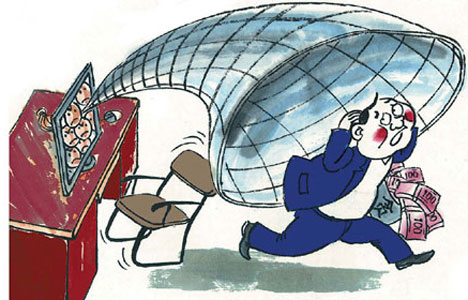Big problems in smallest room
Updated: 2013-05-15 09:33
By Xu Wei and Sun Ruisheng (China Daily)
|
|||||||||||
 |
|
Hougou in Jinzhong city, Shanxi province, is a well-preserved old village on the loess plateau. Sun Ruisheng / China Daily |
A brief trip to Hougou village in Jinzhong city, Shanxi province, will give the visitor a picture of what typical rural life in North China's loess plateau used to be like. Ancient cave houses built into the loess hills and the 18 temples dedicated to Taoism and Buddhism are among the tourist attractions.
Even today, the village still preserves its own distillery for Chinese liquor and vinegar, while bean curd production supports cottage industries that are typical features of self-sufficient agrarian traditions.
Winding roads and mountainous landscapes have not only isolated the village, but also contributed to the preservation of the agricultural lifestyle.
Hougou was unknown to the outside world until Feng Jicai, a Chinese novelist dedicated to the preservation of ancient villages, introduced it in 2002. By 2005, it had become a tourist destination, and many rural households began offering lodgings to visitors.
But there was one aspect of the traditional life that visitors found hard to accept. These were the pit toilets, located outside or besides the pigsties and sheep pens.
"Using the toilets was difficult for tourists from cities, especially ladies," Hou Changyou, director of the village committee, recalls.
For many urban residents, the toilet experience could be truly memorable. It was nothing like what they took for granted at home, with seat, flush, light, tap water and toilet paper. What they did get were swarms of flies, and strong odors.
Related Stories
The green workplace 2013-05-02 09:48
Chinese embrace eco-burials 2013-04-02 13:34
The lands at the ends of the earth 2012-12-13 10:01
Tibetan herders lead environment effort 2012-08-16 14:46
The smell of success 2012-07-12 09:49
Today's Top News
Cross-border shopping exodus expected
Manila to apologize for fisherman's death
Sex slave comments anger China
Mystery package prompts consulate closure
Environment vital: white paper
President makes surprise visit to job fair
Measures promised to tackle refinery waste
Migrants need psychological aid
Hot Topics
Lunar probe , China growth forecasts, Emission rules get tougher, China seen through 'colored lens', International board,
Editor's Picks

|

|

|

|

|

|






